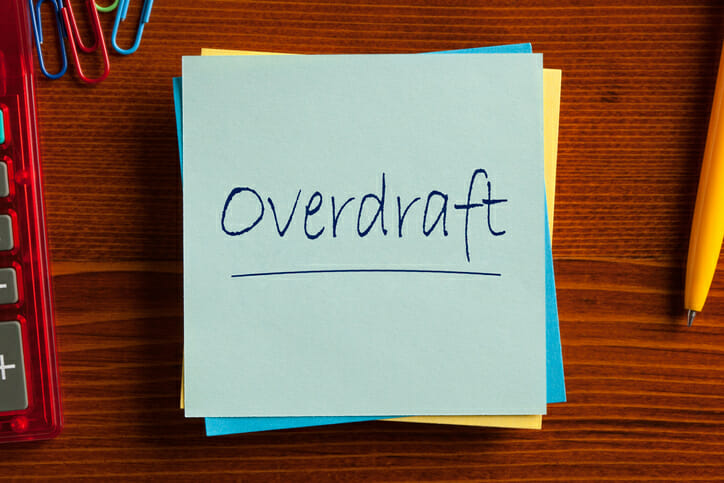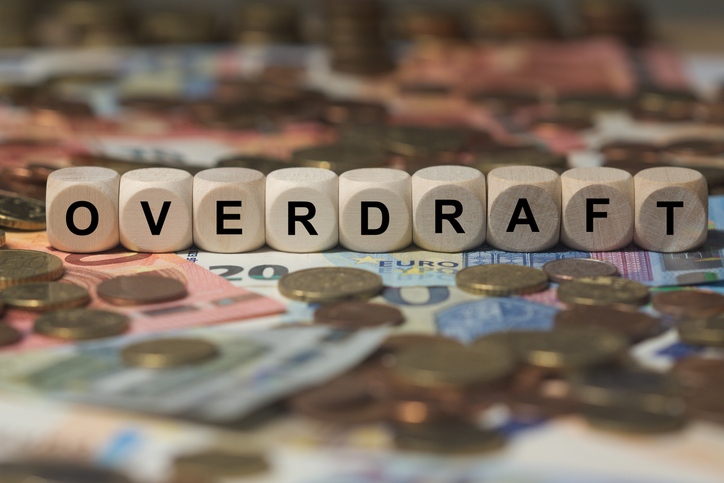Some banks charge fees of up to $35 when customers overdraw their accounts. That can be a nasty surprise and sink the account user's balance. But overdraft protection can help account holders avoid or lower those fees. We'll discuss what overdraft protection is and how you can use it to avoid fees.
For more help with managing your money efficiently, consider working with a financial advisor.
What Is Overdraft Protection?
When a checking account or savings account has no funds available, some banks and credit unions charge overdraft fees, which can be up to $35 per transaction. But with overdraft protection, account users are protected from fees and are able to make withdrawals even if their account is $0 as long as they have a linked account.
If you have another checking account or savings account, you can link them to your main account that has overdraft protection, and any payments you make will be deducted from the secondary checking or savings account you choose to complete the transaction. You can also link a credit card as well if you don't have a checking or savings account.
A fee could still occur while using a secondary account to complete a transaction. But it may not be as high as an overdraft fee, depending on your bank.
What If You Decline Overdraft Protection?It's important to note that if you don't have overdraft protection, overdrafts do have a threshold limit of their own. For example, some accounts in overdraft can't make payments beyond $100 below the $0 account balance. But it's possible for an overdraft to go above that, depending on the transaction.
The most direct way to avoid overdraft fees is to keep your account above $0. It's easier said than done because everyone's financial situation is different. But monitoring your bank account activity and accepting financial help when needed can help keep your account above water.
Set Up Auto-Pay BillingSetting up auto-pay for bill payments can help, as some companies offer discounts to lower your bill if you enroll in automatic billing payments that will be deducted from your account.
Use Auto-Reject Feature to Decline OverdraftsYou can also avoid overdraft fees by using an auto-reject feature, which blocks any transaction that attempts to bring the account balance below $0. Bank account holders need to opt into the use of overdraft fees.
Call Your BankSometimes calling your bank to see if it can waive an overdraft fee works. It isn't guaranteed, but there are times when a representative can waive it if you ask nicely.
There are circumstances where you could get a charge on your account that you believe is wrong. You can file a dispute, and the bank may give you a temporary credit until the case is resolved.
If your dispute is approved, the temporary credit becomes permanent in your account. However, if the dispute is declined, the temporary credit is removed. And you do get charged the original withdrawal amount.
Cut Back On SpendingYou might want to consider cutting back on items you may not need. If your phone bill is too high, for example, you can consider phone plans that are less costly.
If you find yourself eating out more often lately, consider buying food at the grocery store instead.
Bottom LinePaying an overdraft fee can be an unpleasant surprise. But there are steps you can take, such as utilizing overdraft protection, to minimize the chances that you'll be hit with this bank fee.
Tips to Help You Avoid Bank Fees- A financial advisor has the insight to provide excellent guidance as you select a bank and opt for various bank account options. Finding a financial advisor doesn't have to be hard. SmartAsset's free tool matches you with up to three financial advisors who serve your area, and you can interview your advisor matches at no cost to decide which one is right for you. If you're ready to find an advisor who can help you achieve your financial goals, get started now.
- Banks are known for their fees. The best way to avoid these fees is to know what they are and what triggers them. Here's an article with six sneaky bank fees and how to avoid them.
- What if you're still in the process of choosing a bank? The overdraft fee is one good thing to know about when you open an account with a new bank. You should also look for other things like FDIC protection. Here are some things to look for when choosing a bank.
Photo credit: ©iStock.com/ogichobanov, ©iStock.com/domoskanonos, ©iStock.com/shih-wei
The post What Is Overdraft Protection? appeared first on SmartAsset Blog.
The views and opinions expressed herein are the views and opinions of the author and do not necessarily reflect those of Nasdaq, Inc.





